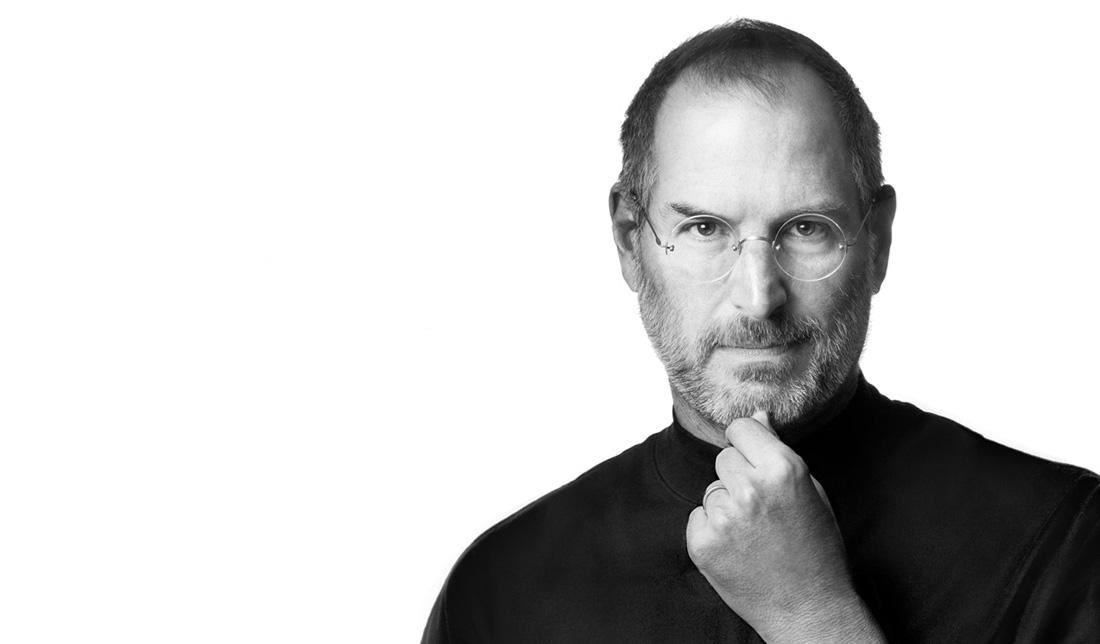 In perhaps the most famous picture of Steve Jobs ever, he is pictured as thinking about the future. Steve Jobs congratulated Albert Wilson, the photographer, and called the picture “the best ever taken of me”. This specific picture is famous for being featured on Walter Isaacson’s biography of Steve Jobs, and Apple’s website after Steve’s death.https://www.boomsbeat.com/articles/13/20131231/50-facts-that-you-didnt-know-about-steve-jobs.htm"In the predictability of our superheroes, we find the stability and comfort that will keep them forever relevant. Whether one admits it or not, superheroes create a necessary American mythology that we all look to when everything seems to be spinning out of control" (Hogue 2). Adam Hogue, in his article, "Why Do Americans Love Superheroes So Much?" (2013) asserts that it is the predictability of a superhero, which elicits admiration from all, rather than his/her actual powers. One’s ability to distance himself/herself from constant change is seen as heroic in society. This predictability must also transfer to "mortal" heroes as well. Sticking to the same values throughout a lifetime, no matter the obstacles and adversity faced is a trait seen in all heroes. A true portrayer of heroism is someone who exemplifies several of society's values. We witness heroism in small amounts every day, across a wide variety of people, faced with different situations. Heroism could be as little as standing up to a bully, or as large as risking one's self to save a stranger. Heroes exemplify traits that society reveres; these characteristics differ depending on what the community needs. A hero does not always have to act alone; he or she can also work with others in a group. A hero strives to make a name for him or herself by leading others and changing society. Their passion for improving society leads to the admiration of many. True heroes inspire others and rewrite the course of society with their intense passion for creating a brighter future and driving others to believe in themselves.
In perhaps the most famous picture of Steve Jobs ever, he is pictured as thinking about the future. Steve Jobs congratulated Albert Wilson, the photographer, and called the picture “the best ever taken of me”. This specific picture is famous for being featured on Walter Isaacson’s biography of Steve Jobs, and Apple’s website after Steve’s death.https://www.boomsbeat.com/articles/13/20131231/50-facts-that-you-didnt-know-about-steve-jobs.htm"In the predictability of our superheroes, we find the stability and comfort that will keep them forever relevant. Whether one admits it or not, superheroes create a necessary American mythology that we all look to when everything seems to be spinning out of control" (Hogue 2). Adam Hogue, in his article, "Why Do Americans Love Superheroes So Much?" (2013) asserts that it is the predictability of a superhero, which elicits admiration from all, rather than his/her actual powers. One’s ability to distance himself/herself from constant change is seen as heroic in society. This predictability must also transfer to "mortal" heroes as well. Sticking to the same values throughout a lifetime, no matter the obstacles and adversity faced is a trait seen in all heroes. A true portrayer of heroism is someone who exemplifies several of society's values. We witness heroism in small amounts every day, across a wide variety of people, faced with different situations. Heroism could be as little as standing up to a bully, or as large as risking one's self to save a stranger. Heroes exemplify traits that society reveres; these characteristics differ depending on what the community needs. A hero does not always have to act alone; he or she can also work with others in a group. A hero strives to make a name for him or herself by leading others and changing society. Their passion for improving society leads to the admiration of many. True heroes inspire others and rewrite the course of society with their intense passion for creating a brighter future and driving others to believe in themselves.
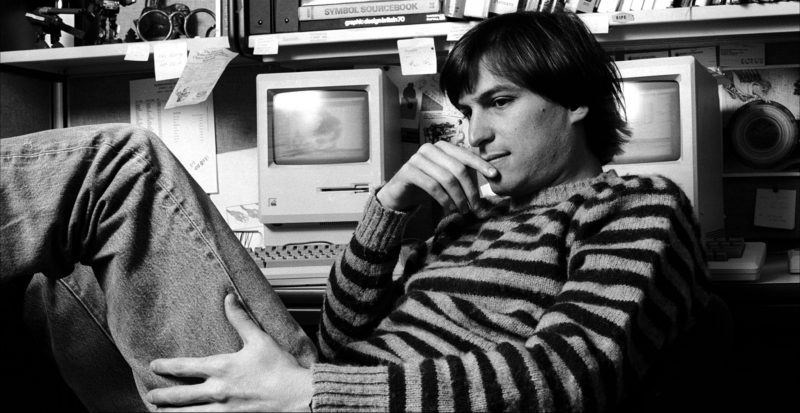 A young Steve Jobs in his workplace, surrounded by several editions of the Macintosh. He often worked twenty-hour days, and spent the night at headquarters several times in a month.https://www.macrumors.com/2017/05/11/steve-jobs-opera-california-washington/
A young Steve Jobs in his workplace, surrounded by several editions of the Macintosh. He often worked twenty-hour days, and spent the night at headquarters several times in a month.https://www.macrumors.com/2017/05/11/steve-jobs-opera-california-washington/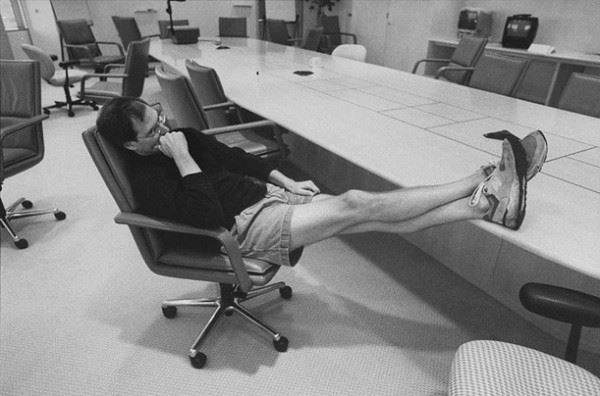 At Reed College, Steve interacted with many hippies, and eventually became one himself. His free-spirited lifestyle led him to become a Zen seeker and visit a guru in India. This lifestyle of his carried on into the career, as he was known for walking barefoot in front of potential clients and investors.https://www.smashinglists.com/steve-jobs-quotes-inspirational/Who would have thought that a college dropout, turned hippie, would become one of the world's greatest innovators? Steve Jobs transformed the world's perspective on electronics. He was an innovator, motivator, and pioneer of the remarkable. Steve attended Homestead High School and Reed College, and in 1977, after dropping out of Reed, Jobs returned to his parent's home in Palo Alto and eventually helped set up Apple in his parent's garage. At the age of 25, Steve Jobs had a net worth of $256 million. Despite his wealth, Jobs never owned a fancy house and never lived alone. After being ousted from Apple in 1995, Jobs bought the company, NeXT, and purchased the struggling graphics company, Pixar. Jobs eventually returned to Apple in 2001 and helped change the tech industry forever with the iPhone, iPad, iPod, and Macintosh computers. In 2011, Jobs’ tragically lost his fight with cancer, but his legacy lives on. Steve Jobs is known for his impact on the tech industry of the world, but his influence goes beyond the tech industry itself. Jobs was a motivator who introduced a new style of "managing," by pushing others to be their best. Not only this, but Jobs also stuck to his values of simplicity and never settled for less than the best. To inspire others, a hero must possess both of these traits. Steve Jobs' persistent passion for innovating the future and his ability to motivate a team to believe in themselves proves him more than worthy of being a genuine hero.
At Reed College, Steve interacted with many hippies, and eventually became one himself. His free-spirited lifestyle led him to become a Zen seeker and visit a guru in India. This lifestyle of his carried on into the career, as he was known for walking barefoot in front of potential clients and investors.https://www.smashinglists.com/steve-jobs-quotes-inspirational/Who would have thought that a college dropout, turned hippie, would become one of the world's greatest innovators? Steve Jobs transformed the world's perspective on electronics. He was an innovator, motivator, and pioneer of the remarkable. Steve attended Homestead High School and Reed College, and in 1977, after dropping out of Reed, Jobs returned to his parent's home in Palo Alto and eventually helped set up Apple in his parent's garage. At the age of 25, Steve Jobs had a net worth of $256 million. Despite his wealth, Jobs never owned a fancy house and never lived alone. After being ousted from Apple in 1995, Jobs bought the company, NeXT, and purchased the struggling graphics company, Pixar. Jobs eventually returned to Apple in 2001 and helped change the tech industry forever with the iPhone, iPad, iPod, and Macintosh computers. In 2011, Jobs’ tragically lost his fight with cancer, but his legacy lives on. Steve Jobs is known for his impact on the tech industry of the world, but his influence goes beyond the tech industry itself. Jobs was a motivator who introduced a new style of "managing," by pushing others to be their best. Not only this, but Jobs also stuck to his values of simplicity and never settled for less than the best. To inspire others, a hero must possess both of these traits. Steve Jobs' persistent passion for innovating the future and his ability to motivate a team to believe in themselves proves him more than worthy of being a genuine hero.
During his entire working life, only one thing kept Steve Jobs going: his fervent passion for inventing the future with exceptional products. When one of Jobs' close friends, John Markoff, was asked about rumors that Steve would not settle for anything but the best, Markoff replied: "‘Mr. Jobs was the ultimate arbiter of Apple products, and his standards were exacting. Over the course of a year he tossed out two iPhone prototypes, for example, before approving the third, and began shipping it in June 2007’” (Markoff 1). Nearly all technology leaders at the time would much rather release a product at a specific date rather than chase perfection. However, Steve Jobs was so focused on changing the world with Apple products, that he would much rather lose money by delaying a release than supply consumers with subpar products. Each of the prototypes he threw out cost the company millions of dollars, nevertheless, Jobs didn’t care about money as much as he did quality. His passion for inventing the future and "thinking differently" led to his focus on perfecting every product Apple shipped. Heroes take the extra step to give people their best, just as Steve Jobs does with his products. Jobs' passion for creating the future is also shown in his "no compromises" attitude: "[Steve] then walked to an easel and began posting his thoughts. The first was ‘Don't compromise.' It was an injunction that would be helpful and harmful. Most technology companies made trade-offs. The Mac on the other hand, would end up being as ‘insanely-great' as Jobs and his acolytes could possibly make it-but it would not ship for another sixteen months, way behind schedule" (Isaacson 143). Jobs' trade-off never garnered praise nor was it ignored. His choice to never compromise had never been seen in popular culture before him and was frowned on by the masses. Despite this, his determination to never take shortcuts channeled his perfection-seeking attitude. Given a choice between releasing a faulty product, which would gain more money, and delaying the launch to deliver the best product they could make, Jobs would choose the latter option. One who sacrifices their status, money, and career for giving society the best he/she can provide is worthy of admiration from all. Essentially, they value the betterment of society more than themselves. Steve Jobs is a hero because of his passion for making an impact on the future. His intense desire to better the future for everyone led to his perfection-seeking attitude rather than a selfish, money-related attitude toward Apple products.
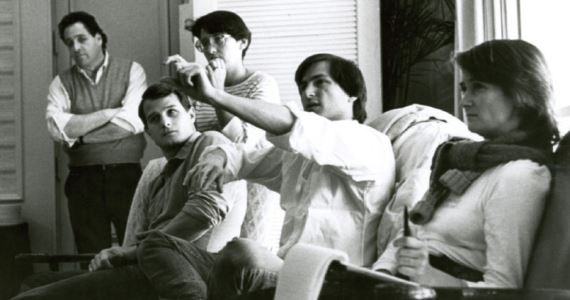 Many of Jobs' old employees, including several from the Macintosh team (shown above), describe Jobs as an impatient, yet convincing leader. He demanded nothing but the best from them, and often fired several workers each day based on his own judgement. Despite this, many remember Jobs as an empowering visionary, who led others to believe in themselves, so that they could change the world together.https://www.smashinglists.com/steve-jobs-quotes-inspirational/2/Through his skillful motivation and his ability to lead, Steve Jobs eliminated the idea of the impossible. While working on the Macintosh, members of the Mac team noticed something different about Steve's ability to motivate: "Steve had a reality distortion field... He can convince anyone of practically anything... It enabled Jobs to inspire his team to change the course of computer history with a fraction of the resources of Xerox or IBM" (Isaacson 119). Steve's motivating style allowed reality to be malleable in his presence. The charisma and eagerness, which he held within, was something Jobs wanted to implant in his workers. The "reality-distortion field," as it was known, was a melange of a charismatic rhetorical style, unconquerable will, and eagerness to bend any fact to achieve a goal. Steve motivated his team by blinding them from the fact that the seemingly impossible was in reality, impossible. With this strategy, Apple changed the future by doing the seemingly unimaginable. Jobs’ ability to turn a company around under his skillful lead, is also seen through his dedication to "Toy Story": "‘Toy Story,' for example, took four years to make while Pixar struggled, yet Mr. Jobs never let up on his colleagues…'In Steve's case, he pushes right to the edge, trying to make the big step forward'" (Markoff 1). Despite taking a chance on acquiring Pixar, a struggling animation company at the time, and losing millions of his money, Jobs kept prodding his employees. He pushed the company to its breaking point, and only relented once they had accomplished something special. The results are remarkable. The infamous ‘Toy Story' franchise is not a product of immensely talented people, but rather a consequence of everyday employees pushed to their extremes. Steve is considered a hero because of the way he encouraged his employees, led them to invent the future, helped to unlock their full potential, and was determined to help the company succeed.
Many of Jobs' old employees, including several from the Macintosh team (shown above), describe Jobs as an impatient, yet convincing leader. He demanded nothing but the best from them, and often fired several workers each day based on his own judgement. Despite this, many remember Jobs as an empowering visionary, who led others to believe in themselves, so that they could change the world together.https://www.smashinglists.com/steve-jobs-quotes-inspirational/2/Through his skillful motivation and his ability to lead, Steve Jobs eliminated the idea of the impossible. While working on the Macintosh, members of the Mac team noticed something different about Steve's ability to motivate: "Steve had a reality distortion field... He can convince anyone of practically anything... It enabled Jobs to inspire his team to change the course of computer history with a fraction of the resources of Xerox or IBM" (Isaacson 119). Steve's motivating style allowed reality to be malleable in his presence. The charisma and eagerness, which he held within, was something Jobs wanted to implant in his workers. The "reality-distortion field," as it was known, was a melange of a charismatic rhetorical style, unconquerable will, and eagerness to bend any fact to achieve a goal. Steve motivated his team by blinding them from the fact that the seemingly impossible was in reality, impossible. With this strategy, Apple changed the future by doing the seemingly unimaginable. Jobs’ ability to turn a company around under his skillful lead, is also seen through his dedication to "Toy Story": "‘Toy Story,' for example, took four years to make while Pixar struggled, yet Mr. Jobs never let up on his colleagues…'In Steve's case, he pushes right to the edge, trying to make the big step forward'" (Markoff 1). Despite taking a chance on acquiring Pixar, a struggling animation company at the time, and losing millions of his money, Jobs kept prodding his employees. He pushed the company to its breaking point, and only relented once they had accomplished something special. The results are remarkable. The infamous ‘Toy Story' franchise is not a product of immensely talented people, but rather a consequence of everyday employees pushed to their extremes. Steve is considered a hero because of the way he encouraged his employees, led them to invent the future, helped to unlock their full potential, and was determined to help the company succeed.
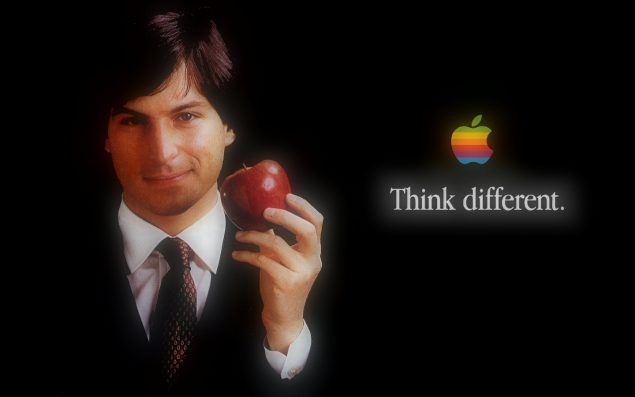 "Think different." was the advertising slogan of Apple from 1997-2002. It was featured in numerous Apple commercials and advertisements. The slogan reflected Jobs’ passion to benefit society in any way he could, whether or not it was unusual.https://www.pedestrian.tv/health/eating-habits-worlds-famous-folk-will-make-feel-normal/Steve Jobs is a hero to people all around the world. He strived to "think different," and to create a better future for generations to come. Not only that, but Jobs was also an extremely inspiring leader who pushed everyone to achieve their best and motivated every man/woman to share his passion for rewriting history. He channeled his determination never to take shortcuts through his perfection-seeking attitude. Steve's "reality distortion field" and commitment to make Pixar succeed only added to his legacy as a leader. He blinded his employees from the idea of impossibility and believed that the only way to get employees to do great things is to set the bar high and expect great things. His legacy has led people to "think different," and his unique passion for making a name for himself in various ways has led me to involve myself in numerous clubs and extracurricular activities. Most notably, Jobs' passion for rewriting the future has led me to design goals that I once perceived as impossible, such as performing a piano solo in San Francisco despite being told that I would crumble on the stage, or running a hundred-meter dash in less than thirteen seconds. Steve has inspired and influenced the tech industry as well. Steve's influence can be seen in the modern simplicity of devices, the sleek, external look which these devices possess, and the friendly tech-ecosystem which now exists. Throughout his career, Jobs never strayed from his basic principles. Other tech leaders would compromise their ways and change to better fit what they believed society needed, but Jobs did not. When asked why he never referred to focus groups for ideas, Jobs replied, "It's hard for [consumers] to tell you what they want when they've never seen anything remotely like it. Take desktop video editing. I never got one request from someone who wanted to edit movies on his computer. Yet now that people see it, they say, ‘Oh my God, that’s great!'" (Jobs). This philosophy of Jobs' significantly differed from other leaders in the tech industry, and he reflected this stability on his colleagues. Jobs felt as if his destiny was to lead, not follow. He never followed others, even the consumers. Through this mentality, Jobs headed the technological revolution of the late nineties/early twenty-first century. Though he will always be remembered as a college dropout who invented the iPhone and Mac, to many he will also be recognized as a passionate man, a motivating leader, an inspiration, and a hero. As shown through Jobs' actions, a genuine hero is someone who has an ardent passion for rewriting the course of history and can act as a leader in hopeless situations.
"Think different." was the advertising slogan of Apple from 1997-2002. It was featured in numerous Apple commercials and advertisements. The slogan reflected Jobs’ passion to benefit society in any way he could, whether or not it was unusual.https://www.pedestrian.tv/health/eating-habits-worlds-famous-folk-will-make-feel-normal/Steve Jobs is a hero to people all around the world. He strived to "think different," and to create a better future for generations to come. Not only that, but Jobs was also an extremely inspiring leader who pushed everyone to achieve their best and motivated every man/woman to share his passion for rewriting history. He channeled his determination never to take shortcuts through his perfection-seeking attitude. Steve's "reality distortion field" and commitment to make Pixar succeed only added to his legacy as a leader. He blinded his employees from the idea of impossibility and believed that the only way to get employees to do great things is to set the bar high and expect great things. His legacy has led people to "think different," and his unique passion for making a name for himself in various ways has led me to involve myself in numerous clubs and extracurricular activities. Most notably, Jobs' passion for rewriting the future has led me to design goals that I once perceived as impossible, such as performing a piano solo in San Francisco despite being told that I would crumble on the stage, or running a hundred-meter dash in less than thirteen seconds. Steve has inspired and influenced the tech industry as well. Steve's influence can be seen in the modern simplicity of devices, the sleek, external look which these devices possess, and the friendly tech-ecosystem which now exists. Throughout his career, Jobs never strayed from his basic principles. Other tech leaders would compromise their ways and change to better fit what they believed society needed, but Jobs did not. When asked why he never referred to focus groups for ideas, Jobs replied, "It's hard for [consumers] to tell you what they want when they've never seen anything remotely like it. Take desktop video editing. I never got one request from someone who wanted to edit movies on his computer. Yet now that people see it, they say, ‘Oh my God, that’s great!'" (Jobs). This philosophy of Jobs' significantly differed from other leaders in the tech industry, and he reflected this stability on his colleagues. Jobs felt as if his destiny was to lead, not follow. He never followed others, even the consumers. Through this mentality, Jobs headed the technological revolution of the late nineties/early twenty-first century. Though he will always be remembered as a college dropout who invented the iPhone and Mac, to many he will also be recognized as a passionate man, a motivating leader, an inspiration, and a hero. As shown through Jobs' actions, a genuine hero is someone who has an ardent passion for rewriting the course of history and can act as a leader in hopeless situations.
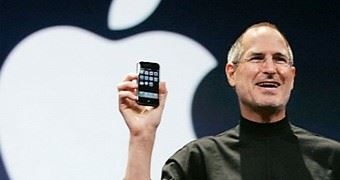 Steve Jobs presenting the first iPhone to a large audience at Apple’s annual keynote address in San Francisco, California. The keynote address took place on June 29, 2007, and is largely known by many in the tech industry as a release that changed the world.https://www.forbes.com/sites/jeffreysica/2012/03/19/another-bite-of-the-apple-how-buying-apple-stock-almost-changed-my-life/#2c98f1a34bf0Works Cited
Steve Jobs presenting the first iPhone to a large audience at Apple’s annual keynote address in San Francisco, California. The keynote address took place on June 29, 2007, and is largely known by many in the tech industry as a release that changed the world.https://www.forbes.com/sites/jeffreysica/2012/03/19/another-bite-of-the-apple-how-buying-apple-stock-almost-changed-my-life/#2c98f1a34bf0Works Cited
Hogue, Adam. “Why Do Americans Love Superheroes So Much?” Mic, Mic Network Inc., 25 Oct. 2015.
Isaacson, Walter. Steve Jobs. Simon & Schuster Paperbacks, 2015.
Isaacson, Walter. “How Steve Jobs’ Love of Simplicity Fueled A Design Revolution.”Smithsonian.com, Smithsonian Institution, 1 Sept. 2012.
Markoff, John. "STEVEN P. JOBS, 1955-2011; Redefined the Digital Age As the Visionary of Apple." New York Times, 6 Oct. 2011, p. A1(L). Biography in Context, Accessed 21 Dec. 2017.
“Text of Steve Jobs' Commencement Address (2005).” Stanford News, Stanford University, 12 June 2017.
Page created on 2/26/2018 2:43:45 AM
Last edited 1/12/2025 5:30:11 PM
